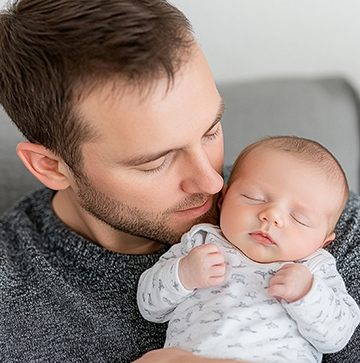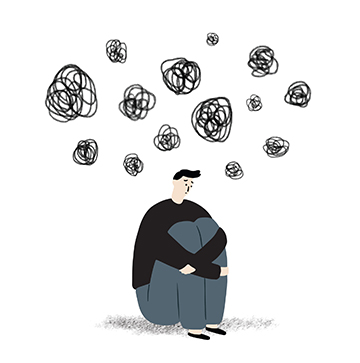Congratulations—you’re a dad. That tiny human in your arms has just changed absolutely everything. If you are feeling anxious, overwhelmed and wondering if you’re cut out for this important and highly unfamiliar job–you’re in good company.
The Reality Check
The first few weeks, you’ll be in survival mode. Most likely, you’ll be sleep deprived. Everyone at the gender reveal who told you to “get your sleep before the baby comes” missed the memo that you can’t actually bank sleep for the future. So basically, you’re doing the most important job of your life on less than a full tank. You’re learning the cries, is it hunger, discomfort, tiredness? Do they want to be held? You will figure it out, but the learning curve can feel pretty steep. Remember, you will not have all the answers immediately. That’s not about you, that’s about the job of parenting.
Supporting Your Partner
If your partner gave birth, they’re recovering from a massive physical and emotional experience and their hormones will likely need to recalibrate. You can offer support by taking on any tasks you can: diaper changes, laundry, cooking, cleaning. If they’re not breastfeeding, wait for the crying or the next scheduled feeding, grab a bottle and have some quality time. If they are nursing, you can still help by bringing the baby for night feeds and handling the aftermath.
Finding Your Bond
“What if I don’t feel an instant connection with my baby?” First, don’t panic. It takes time. Some dads feel an immediate overwhelming love at first gaze. Others gradually build a bond over time. Both are perfectly normal.
If you’re worried about creating a bond with your new baby, here are a few things to try. Hold your baby against your bare chest. Skin to skin contact is helpful. Talk to them, even though they cannot understand your words. Be in charge of specific parts of your baby’s routines like bath time, tummy time or bedtime. It will help you foster your relationship with the baby and .
Managing the Emotions
With fatherhood, comes the possibility of some intense and unexpected feelings. You might feel protective, worried, overwhelmed, and even sad at times about the loss of your old pre baby independence. About 10% of new dads experience paternal postpartum depression. If you’re struggling with persistent sadness, anxiety, or difficulty bonding, talking to a healthcare professional can help you.
Practical Survival Tips
Like any new skill, tackling fatherhood is best when broken down into manageable pieces. Learn the basics, diaper changing, swaddling and which cry means which need for your baby.
Set your expectations. Keep in mind that your house may be messier, your schedule irregular, your social life dramatically different and your sex life may be put on hold. When the opportunity arises, sleep. Even if it means napping in the day. Take help when people offer, ask if you need it. If someone offers to bring meals, fold laundry or hold watch the baby—say “yes, please!!”
The Bottom Line
The perfect father is about as realistic as Bigfoot. Trust yourself and do your best. Show up, care and be willing to learn and make mistakes. The sleeplessness and crying are temporary. Before you know it you’ll be gifted the sound of your first “Dada.” Being concerned about the type of dad you’ll be is a great first step. Partner with your partner, take it step by step and you’ll be great. Not perfect, but great.
If the anxiety of being a new dad is more than you’d like to carry, reach out and let’s get it to a manageable state.




